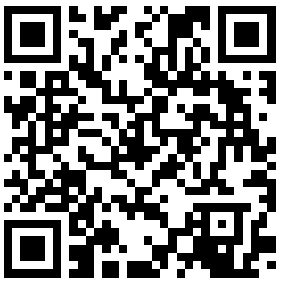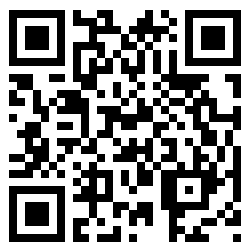
So I get hit up quite frequently about various coins and whether or not they’re worth looking into, are a scam, are legit, etc. So I’ve decided to try and pick some of the coins I get asked about most that I don’t already know about, and read a bit about them, and give some off-the-cuff opinions on their validity to refer my friends and family to. I hope others find these useful.
Note: These are not meant to be complete. This is just a summary of my thoughts as I go through a blockchain technology that I’m not already familiar with. I hope that if I say something wrong, or information that answers one of my problems is brought up in the comments below. As always, more information is always better than less, just come with evidence. Also, THIS ISN’T INVESTMENT ADVICE.
Today, we’re looking at Cardano (ADA), a platform claiming to be the next big thing and based on academic study of blockchain philosophy. It’s current market cap (as of Dec. 19th, 2017) is $11,802,780,321, the 7th highest of all. It has received a meteoric rise lately, which is probably why many are asking me about it. Market capitalization (especially in crypto-land) and its movement is not always a good indicator of project health, but it sure does bring attention to coins quickly.
Here’s some quick pros vs cons that come to mind as I peruse their material.
Pros:
- They are based out of IOHK which is a resource I’ve often looked to for thinking about how blockchains should work and the formal breakdown of the algorithms that underpin things. The project was built from a mindset I use myself, from first principles. Start from the axiomatic truths you expect at the ground layer, and then formally build from there.
- Ouroboros is something I’ve research and am quite excited about as a Proof of Stake consensus mechanism, and am curious to see it in action. I think that this is probably the best competing research with Ethereum’s Casper that currently exists, and I’ve read all (probably) of their papers.
- On the same development note, the Github has been active for a long time, with constant substantial code contribution. This is indicative of actual development, and not promise of future development. It is clear that work has been underway for a substantial amount of time, and not thrown together at the last minute like you would expect from a pump and dump.
- It is substantially novel in its approach to form “blockchain technology” (See the corresponding con as well). This means that it isn’t just a carbon copy of the networks we see today, with one difference to make it try and stand out. Blockchain technology has serious roadblocks in scale and effectiveness if we extrapolate to the usability we think this technology should handle. For a good outline on what those are, check out Preethi Kasireddy’s recent blog posts. She does an excellent job explaining them in a manner that’s approachable to all. She also was on our podcast to discuss these issues and more.
- As a PhD myself, I have an affinity for those that respect the peer-review process, and the rigor required to develop in a constructively critical environment. It seems as though those principles drive the development of every decision made thus far.
- There is a plethora of available information to learn more about how things work, and why the decision was made to do it that way. If I have a question, I feel as though I will be able to get at least surface level explanation to it, and if that isn’t sufficient, enough information to figure out who to ask.
- I enjoy infrastructure level technology at this point in the entire blockchains space. This is very much infrastructure level.
Cons:
- The meteoric rise in market cap is not indicative of the current state of the tech. I think it is clear that people have jumped into something they don’t understand because the website looks good, and they’ve outlined the things they want to do. The team seems as competent as any, but the fact of the matter is that it doesn’t exist yet and hasn’t stood the test of time and usage.
- The design decisions of how this technology will work is substantially different than any of the networks that are live now, which means that we have no idea of how well it will actually work in practice once under load and real adversarial actors are trying to game it for their personal benefit. Serious flaws may have not been exposed. Remember, ALL of blockchain technology is novel, and we’re all experimenting with what works. I believe this team has taken many steps to learn from valuable lessons from what currently exists, as indicated by the academic papers publish, but we simply can’t know if it will work yet.
- I’m not sure you can call this a con, but the distribution of a large amount of tokens in the genesis block is not something I enjoy for an open infrastructure level platform. I need to look more into it, and the site that discusses it is very transparent. I’ve aways said that if a network provides value and utility that doesn’t exist elsewhere, then the creators should be heavily rewarded, so this isn’t that hard of a con barring no serious issues that I haven’t seen yet.
- There’s still a tremendous amount of work to be done to get to what they want to be. This certainly isn’t impossible, especially with a massive influx of capital and talent that comes from investors and project relationships. They seem to have a quantitative method for identifying how far these things have come in their roadmap page. Not sure how they’ve figured that out, but it looks pretty.
All-in-all, I’m quite excited about this platform. This is a simple cursory look at whether or not I would want to dive deep and keep track of this project. Short answer, I’ll probably be divesting a good portion of my attention into it, and possibly trying to contribute where I can. I fact, full disclosure, I even bought some during the writing of this post. The fact that I had been reading IOHK’s papers for a long time now makes me a bit annoyed that I didn’t see this coming a while ago, but whatever. This space moves incredibly fast and there’s too much going on to watch everything.
If you like these types of shotgun opinion pieces, hit the “clap” button to let me know. I’m interested to hear your opinions on Cardano, what I got right, what I got wrong, or what I didn’t get at all.
Stuff about me
I do this because I’m curious, and people ask me a lot of questions about things I don’t know. If I’m going to spend the time to look into attempting to answer them with any rigor whatsoever, I might as well try and give access to as many people who ask the same things. There’s a lot going on in this space, quickly, and not enough people trying to inform interested parties about it. Also this has the added benefit of maybe getting corrected if I’ve made a mistake in my surface level analysis.
As always, come listen to The Bitcoin Podcast and BlockChannel to hear me talk to people in the space about what they’re doing. Our slacks (TBP and BlockChannel) are always welcome to the community as well. I’m always present in them to talk.
I bought using the Binance exchange. I’ve been pretty happy so far with it. If you sign up, use my affiliate code found here:
https://www.binance.com/?ref=15791278

ETH and ERC20 tokens: 0x8F53781799515e5dc8f5D00C528940cAe99aC969

BTC: 1DXmuHMufPAUEuRUwKMNLqiMqmWQyKmZP6